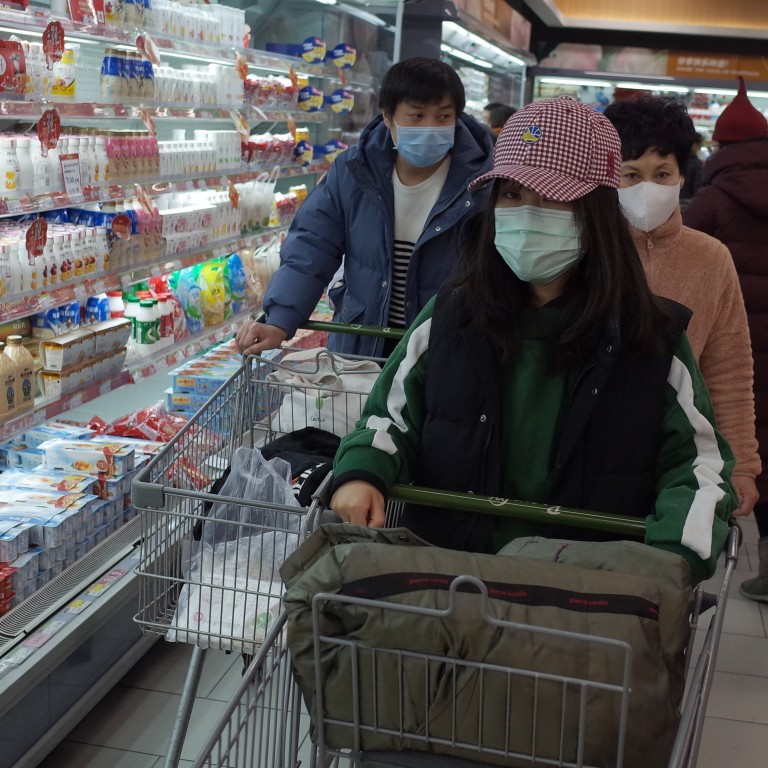
Coronavirus: tales of economic woe spread on Chinese social media as workers, small businesses suffer
- Acute economic pain is gripping many people in China as the coronavirus erases potential income streams and business revenues
- A survey found that two thirds of Chinese small businesses expect to fail if they have no revenue for two months
Tales of economic misery among Chinese workers and small businesses caused by the coronavirus outbreak are spreading rapidly on social media, raising questions about the outlook that no one can answer.
An extended lack of income among workers, especially those with families, risks a major increase in urban poverty, one expert warned.
On China’s Twitter-like Weibo, a woman living in Shenzhen said her anxiety about her financial future was greater than her worry about contracting the virus. With most people staying home to avoid contracting the virus, her husband, a taxi driver, was no longer able to earn enough money to cover the expense of renting the taxi, let alone make enough to support the family. The rent for their home, though, and the fee for her son’s kindergarten tuition were still due, even as food prices had grown more expensive due to supply shortages.
“Living like this is too difficult. My husband goes out [to work] every day and is worried about getting infected with the virus. Still, he has to go out due to the pressures of life. We didn’t return to my hometown for the [Lunar New Year] holiday this year [to stay and] make more money. Now we have to take money from our own [savings] to pay for the taxi rental fee,” she wrote.
Living like this is too difficult. My husband goes out [to work] every day and is worried about getting infected with the virus. Still, he has to go out due to the pressures of life
“Do I have to be a loser all my life?” he lamented.
A woman pregnant with her second child said her husband, a salesman, had to support five people, including her parents, but the virus has forced him to stay at home, meaning the family lost its only source of income.
Do I have to be a loser all my life?
With only 50,000 yuan (US$7,200) in savings, they do not have enough to pay the bills for their house, car, first child’s tuition, as well as medical expenses.
“There is not a single dime coming in, I am really desperate,” she said.
The possible emergence of a new population of urban poor could raise a significant challenge for the Chinese leadership, who said this week that one of the country’s most important goals in 2020 was to eradicate poverty.
“Economic research at this moment should urgently include ‘epidemic economics’,” Zhao wrote in a note. “Beyond economic data, it is very important to look [closely] at this silent crowd. They live in big cities, but they don’t belong there. They contribute to urban development, but can be abandoned easily. This coronavirus is severely affecting their already weak living conditions.
“Therefore, if the virus cannot be controlled in timely manner and normal economic activities cannot recover quickly, the number of urban poor will definitely rise.”
The survey by Tsinghua and Peking universities also found that 22 per cent of firms plan to cut salaries or reduce jobs as a result of the coronavirus outbreak, with 58 per cent expecting to see revenues to shrink by 20 per cent or more from 2019.

